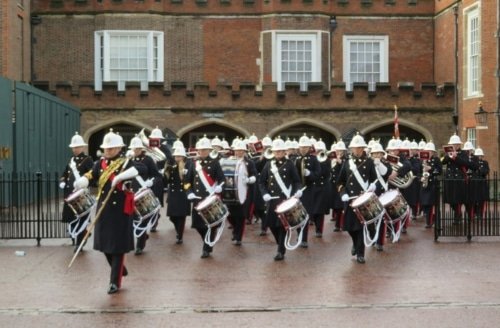

This is part 5 of my series on what I understand the story of the Bible to be. In review, God created a good world and put humanity in charge of it. But then things went downhill. We opted to go our own way instead of the way God had for us. And that began a downward cycle of rebellion. Could anything be done to stop it?
Abraham
Who is the most significant individual in the Old Testament? You might argue for Moses or David. And they were indeed important. But it seems to me that Abraham is at least on a par with them, if not higher. It is with Abraham that God began his plan of redemption.
Little is known of Abraham’s first 75 years of life except that he lived in Ur of the Chaldeans (Gen 11:31) and came from a family that worshiped the gods of that people (Josh. 24:2, 14). But God called him to leave his old life and family behind and move to Canaan. And Abraham did.
An Unconditional Promise
And, as a result, God made a promise to Abraham. He told him, “I will make you into a great nation, and I will bless you; I will make your name great, and you will be a blessing . . . and all peoples on earth will be blessed through you” (Gen 12:2-3). This is a promise that God reiterated in Genesis 15:5-6 and Genesis 22:15-18. And in those two passages, he added that Abraham would have countless descendants.
These promise passages are, in my opinion, some of the most important passages in Genesis. And indeed, in the entire Old Testament. Much of what follows builds on this foundational promise.
This promise was unconditional. God would keep his promise, regardless of what Abraham or anyone else did. This promise is called a covenant at times (Ex. 2:24). But it is unlike the covenant that God made with Israel at Sinai. That covenant was conditional on Israel keeping the terms of the covenant (Ex. 19:5-6). The promise made to Abraham was not.
This promise to Abraham was confirmed to Isaac in Genesis 26:3-5 and Jacob in Genesis 28:13-15. They would take possession of the land, have descendants as numerous as the dust of the earth, and offspring who would be a blessing to all people.
Abraham’s Response
Genesis 15:4-6 is the second recorded instance of the promise made to Abraham, this time focused on his offspring. Abraham, despite his age and Sarah’s barrenness, believed God. And as a result, God considered him to be righteous.
While faith-based righteousness is not emphasized in the Old Testament, it was nonetheless true throughout the Scripture. And it became central to Paul’s doctrine of justification by faith. Salvation (being declared righteous) has always been a matter of faith in God.
Fulfilling the Promise
After a four-hundred-year sojourn in Egypt, God remembered his promise (covenant) with Abraham, Isaac, and Jacob (Ex. 2:24), delivered their descendants from slavery in Egypt, and brought them back to the land promised to their ancestors.
Israel took the land that had been promised and grew to a numerous people. But was this the fulfillment of the promise first made to Abraham and then reiterated to Isaac and Jacob? Or was there more still to come?
Coming Up
After an unconditional promise came a conditional covenant with the descendants of Abraham, Isaac, and Jacob (Israel). The next post will look at the covenant and see how it advanced God’s eternal plan for his creation.
- The Story of the Bible (2/8/2025) – This is an introductory post to a series on the story of the Bible. At least as I understand it. Each post will build on the previous posts.
- A Good Creation (2/15/2025) – God created a good, although not necessarily perfect, world. His creation included all that has been made, both physical and spiritual.
- Humanity (2/22/2025) – Humanity is described as the final work in God’s creation, created to be in God’s image, and given rule over the rest of the creation.
- The Fall and Death (3/1/2025) – How did God’s creation end up in the mess it’s in. Genesis tells us humanity rebelled against God, fell from our high place, and faced death.
- An Unconditional Promise (3/8/2025) – Abraham was promised land, descendants as numerous as the dust of the earth, and offspring who would be a blessing to all people.
The post An Unconditional Promise appeared first on A Clay Jar.


